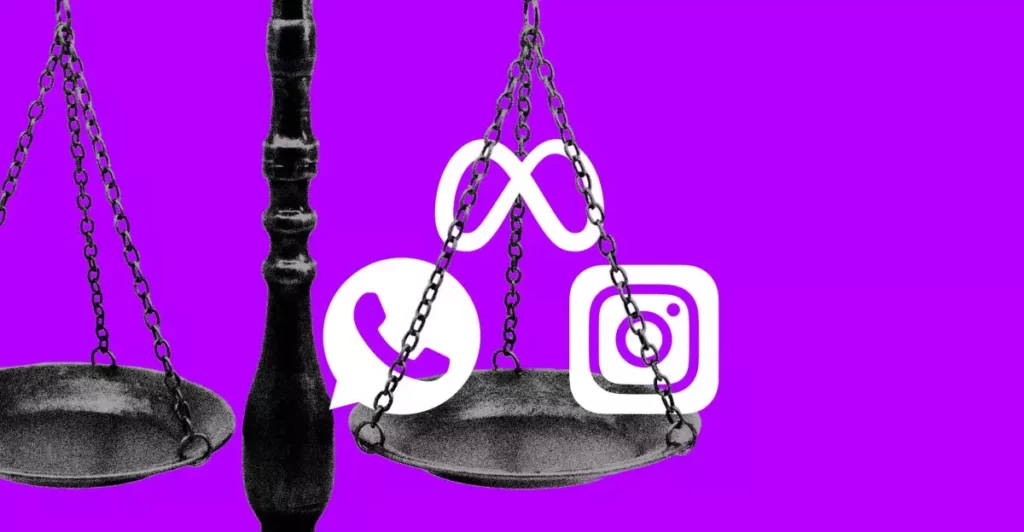The FTC’s pursuit against Meta Platforms, Inc. reveals a much deeper conflict than mere antitrust allegations; it peels back the layers of the complex strategies employed by CEO Mark Zuckerberg. At the core of this trial lies the government’s contention that Zuckerberg’s acquisitions of Instagram and WhatsApp were more about monopolistic control than fostering innovation in a rapidly evolving digital communication landscape. Contrary to this view, Zuckerberg maintains that these strategic moves were crucial responses to the changing dynamics of how we communicate—highlighting an underestimated fact: there is no innovation without risk.
The narrative presented by the FTC asserts that these acquisitions were preemptive strikes against competition. Relying on data and interpretations, they aim to fit Zuckerberg’s vision into the mold of a corporate predator. However, this black-and-white portrayal fails to capture the intricate and often morally ambiguous terrain of technological innovation. Zuckerberg’s acquisition assertions, especially his determination to spend $19 billion on WhatsApp, underscore a conviction that is often overlooked in regulatory discussions—a commitment to not just survive, but to thrive amid changing consumer expectations.
The Dichotomy of Competition and Collaboration
Zuckerberg’s courtroom demeanor, a fusion of assertiveness and defiance, is compelling. His claim that he would invest in WhatsApp again speaks volumes about his confidence in the platform’s trajectory and the gravity of the communication landscape. With nearly 3 billion users, WhatsApp has evolved into an indispensable tool for billions. Yet, the apprehension that such purchases were designed merely to squash competition misses the broader context: every tech giant operates in uncharted waters, attempting to innovate and grow while strategically placing themselves in relation to existing power.
The internal culture at Meta, as revealed during the trial, seems to straddle this knife-edge between eliminating competition and embracing innovation. Zuckerberg’s belief that WhatsApp would not contest Facebook’s dominance—a claim rooted in insights gained from the app’s founders—challenges the FTC’s narrative by framing it as a proactive step to innovate rather than a defensive maneuver to subdue competition.
Strategic Acquisitions in a Competitive Landscape
One of the trial’s underlying themes is the precarious and often competitive dance that tech giants must engage in. Meta’s reliance on juggernauts like Apple and Google for app distribution introduces a paradox: while these platforms are allies, they are also gatekeepers. Zuckerberg’s candid acknowledgment of this reality reveals a more vulnerable side of his empire-building. Faced with the challenge of maintaining a competitive edge in a market punctuated by hyper-innovation, he contends that acquiring WhatsApp was a tactical approach designed to balance vulnerability with strength.
Yet it’s essential to recognize the complexities lurking beneath such strategic acquisitions. Yes, they may act as a temporary defense mechanism, but they also serve a fundamental role in shaping the company’s identity and future directions. Zuckerberg’s push to maintain privacy features after the Instagram acquisition depicts a blend of cautious integration and vision-driven independence. The fallout from this balancing act laid the groundwork for significant transitions within Instagram, which further complicates the tale.
Innovation versus Monopolistic Behavior
In an environment where tech giants often face criticism for becoming monopolies, Zuckerberg’s arguments may be perceived as controversial. Yet, they open up an essential dialogue about the merit of bold acquisitions in an ever-evolving sector. Should innovation be synonymous with solitude, or does collaboration through acquisition breed a new generation of advancements that might otherwise flounder?
Zuckerberg’s viewpoint positions him as more than just a corporate executive; it offers him as a contender in the battle of ideas that define the communal beliefs about monoculture in tech. As he depicts the need to integrate WhatsApp and Instagram into a cohesive strategy, it invites consideration of whether this pursuit is inherently malicious or an entrepreneurial necessity.
The Future of Regulation and Innovation
The consequences of the FTC v. Meta trial will undoubtedly proliferate throughout the tech industry, paving the way for a new discourse surrounding regulatory scrutiny. The blurred lines between acquisition for competitive advantage and suppression raise questions about the responsibilities of tech giants in a rapidly interconnected world. Will this trial merely underscore a crackdown on what some deem monopolistic behavior, or will it ignite a more profound acknowledgment of the need for innovation in the face of evolving consumer behaviors?
In Zuckerberg’s vision, there lies a tenacity to pioneer an ecosystem that adapts continually to digital advances, even if it comes with the baggage of controversy. The duality of innovation versus monopolistic tendencies will likely dominate corporate discussions for years to come, compelling leaders to navigate this labyrinthine reality while remaining accountable for their choices and strategies.









Leave a Reply